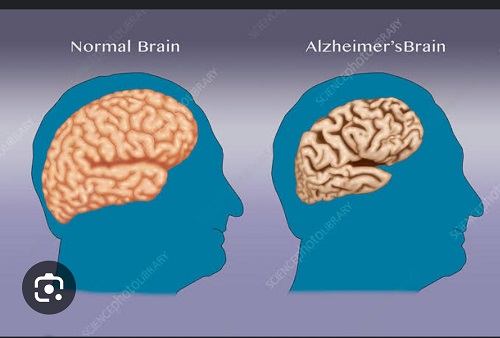

By Anthonia Akanji
The word Dementia sends shivers down the spine of those who know its debilitating impact while those who do not, see it merely as a disease of the elderly.
Experts say Dementia is a progressive memory loss associated with the elderly but not caused by old age. The condition cannot be cured but can be managed with proper medication and counselling from specialists.
It is common in people over the age of sixty-five but can affect people in their thirties, forties or fifties.
Dementia is manifested in memory loss such as forgetting important dates, and events and remembering only recent ones, inability to carry out simple tasks or becoming more dependent on family members to perform certain tasks they used to handle on their own.
Affected persons also ask the same question over and over again, and suffer reduced concentration, personality or behavioural changes, apathy and withdrawal.
Due to this condition, some of them become difficult, adamant and unsociable making it hectic for family members and caregivers.
In the next 30 years, there will be more people sixty and above residing in Sub-Saharan Africa compared to other parts of the world.
The implications are that there will be a likelihood of some of these people having dementia.
It is because of this that a study that examines the genetics of persons living with dementia in Africa is being carried out.
The project known as READD- ADSP (Recruitment and Retention of Alzheimer’s Disease Diversity Genetic Cohorts/Alzheimer’s Disease Sequencing Project) is the first of its kind in Africa where a genetic study will be carried out to ensure a better outcome for dementia patients.
Community Engagement Coordinator for the project in Africa, Professor Oyedunni Arulogun, who is one of the investigators, explained that the study was to help reduce the stigma associated with dementia and to create more awareness of the fact that patients are not witches, wizards or difficult as presumed.
“They are not difficult people but a condition and that is the only way they can express themselves. When we understand the disease entity we will be able to help them live a more fulfilling life “
The community will be fully involved in the project hence a Community Advisory board consisting of different segments of the society like the media, senior citizens’ groups, representatives of non-governmental organisations and carers of people living with dementia has been set up.
Deputy Chairman, Community Engagement Coordinator, a Neurologist, Dr Temitope Farounbi explained that the project would promote a better understanding of Dementia, the total makeup of people of African ancestry, how they respond to diseases and the treatment that fits them.
“We want to use the opportunity to advocate better care for persons living with dementia and also for their caregivers who are sometimes family members.
To Mrs Victoria Mustapha, caring for a person with dementia is not child’s play as it involves a lot of patience.
“At first it was not easy because I had no understanding of what dementia was but after my mother-in-law was diagnosed with dementia, I gained knowledge from the experts. We started loving and making her comfortable, she started improving, not that the memory was completely restored but the confusion had reduced drastically”
Mrs Mustapha called for a better understanding of people living with dementia and the need to love them in that condition no matter how difficult while at the same time seeking appropriate help for them to live better.
Subscribe to our Telegram and YouTube Channels and also join our Whatsapp Update Group